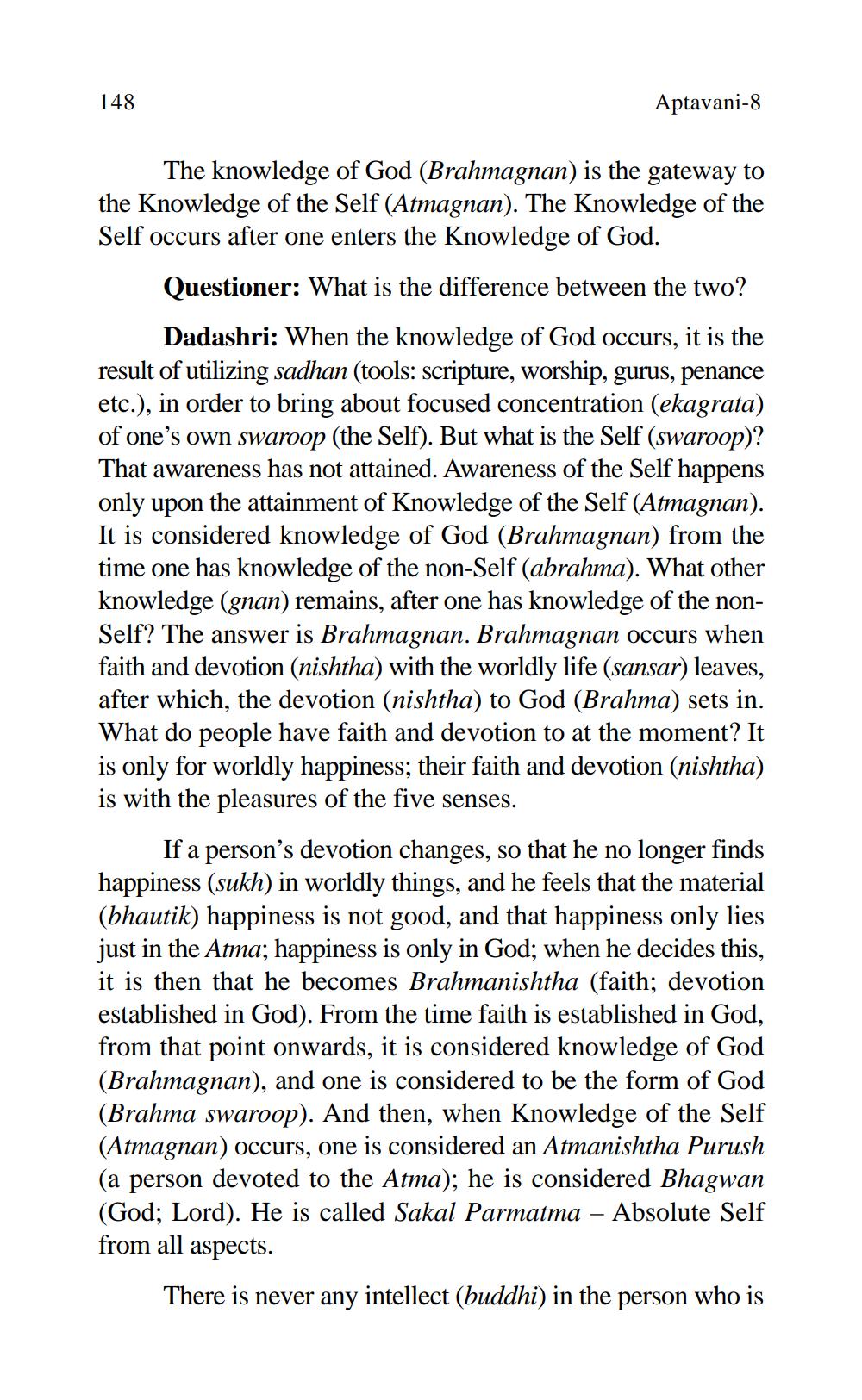________________
148
Aptavani-8
The knowledge of God (Brahmagnan) is the gateway to the Knowledge of the Self (Atmagnan). The Knowledge of the Self occurs after one enters the Knowledge of God.
Questioner: What is the difference between the two?
Dadashri: When the knowledge of God occurs, it is the result of utilizing sadhan (tools: scripture, worship, gurus, penance etc.), in order to bring about focused concentration (ekagrata) of one's own swaroop (the Self). But what is the Self (swaroop)? That awareness has not attained. Awareness of the Self happens only upon the attainment of Knowledge of the Self (Atmagnan). It is considered knowledge of God (Brahmagnan) from the time one has knowledge of the non-Self (abrahma). What other knowledge (gnan) remains, after one has knowledge of the nonSelf? The answer is Brahmagnan. Brahmagnan occurs when faith and devotion (nishtha) with the worldly life (sansar) leaves, after which, the devotion (nishtha) to God (Brahma) sets in. What do people have faith and devotion to at the moment? It is only for worldly happiness; their faith and devotion (nishtha) is with the pleasures of the five senses.
If a person's devotion changes, so that he no longer finds happiness (sukh) in worldly things, and he feels that the material (bhautik) happiness is not good, and that happiness only lies just in the Atma; happiness is only in God; when he decides this, it is then that he becomes Brahmanishtha (faith; devotion established in God). From the time faith is established in God, from that point onwards, it is considered knowledge of God (Brahmagnan), and one is considered to be the form of God (Brahma swaroop). And then, when Knowledge of the Self (Atmagnan) occurs, one is considered an Atmanishtha Purush (a person devoted to the Atma); he is considered Bhagwan (God; Lord). He is called Sakal Parmatma – Absolute Self from all aspects.
There is never any intellect (buddhi) in the person who is




